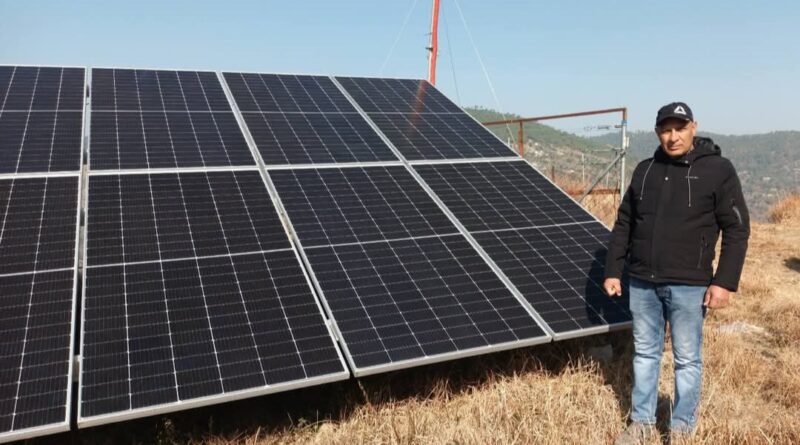Solar Power Revolution: Co-operative Society in Patdighat Generates Rs 5 Lakh Monthly from Barren Land
In a remarkable example of innovation and sustainability, the Batahuta Agricultural Service Co-operative Society Limited in Patdighat, Mandi district, has transformed 30 bighas of barren land into a thriving one-megawatt solar energy project. This initiative, aligned with the government’s solar energy policy, is now generating a steady monthly income of Rs 4 to 5 lakh, showcasing how rural areas can harness renewable energy for economic growth.
Society Secretary Pitambar Lal shared that the idea stemmed from the challenges faced by the region. With limited irrigation facilities, farmers in the area heavily rely on rainfall, making traditional farming practices like greenhouses and dairy farming difficult. Additionally, the remote location posed challenges for marketing, cold storage, and crop grading systems. Determined to find a sustainable solution, the society proposed a solar energy plant, which could operate efficiently without relying on water or complex infrastructure.
The project gained momentum when the Snow Energy Department allocated the plant to the society in August 2023. After nine months of dedicated work, the “Cooperative Assembly Solar Power Project” was successfully established in Gulela, Patdighat, in March 2024. The installation cost approximately Rs 5 crore, with Rs 2.7 crore financed through a loan from the State Bank of India, Sundarnagar, and the remaining Rs 2.3 crore invested by the society.
The plant currently sells electricity to the Himachal Pradesh State Electricity Board Limited at Rs 3.75 per unit under a 25-year contract. This has resulted in a monthly income of Rs 4 to 5 lakh, with annual earnings estimated at Rs 50 to 55 lakh. The plant operates at 90-95% capacity during summer and 70% in winter. Pitambar Lal expressed confidence that the society would recover the project cost within 10 to 12 years, after which net profits are expected to rise significantly.
Beyond financial gains, the project has also created employment opportunities for local youth. Maintenance activities such as solar fencing, CCTV surveillance, and cleaning systems are managed by hired staff, including an electrician and a watchman.
The project also benefited local landowner Dila Ram, a retired teacher from Gulela, Hadasar, who leased his 30-acre barren land to the society. Previously, the land was unusable due to damage caused by wild animals. Now, Dila Ram earns around Rs 1.5 lakh annually from the lease, providing him with a stable income.
Pitambar Lal praised the state government’s efforts to promote solar energy under the green revolution, noting that such projects are empowering rural communities and fostering self-reliance. Deputy Commissioner Apoorva Devgan echoed this sentiment, emphasizing the district’s push to motivate more people to adopt solar energy under the government’s policy.
Senior Executive Engineer Raj Kumar Gupta highlighted that six solar plants have already been installed in the Sarkaghat subdivision, with the government purchasing electricity at Rs 3.75 per unit. This initiative is not only boosting local economies but also contributing to a greener future.
The Batahuta Co-operative Society’s solar project stands as a shining example of how innovation, collaboration, and renewable energy can transform challenges into opportunities, paving the way for sustainable development in rural India.



